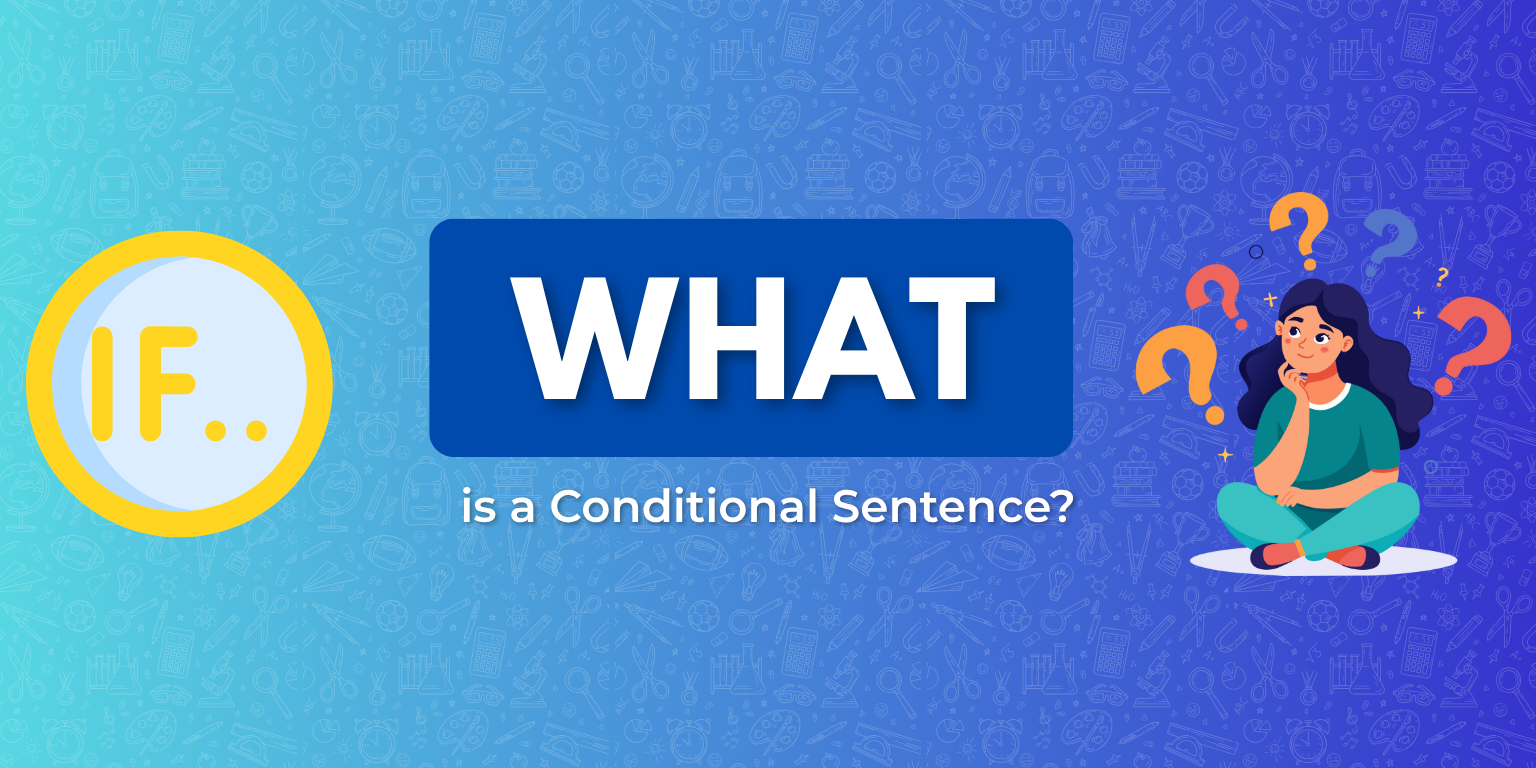Conditional sentence is used to talk about situations and their possible results. They often start with “if” and show cause and effect.
They help us talk about real and unreal situations, plans, wishes, and possibilities. Understanding them will improve your grammar and writing skills.
In this blog, you will learn what conditional sentences are, their types, and how to use them easily in everyday English.
What Is a Conditional Sentence?
A conditional sentence shows a condition and a result. It has two parts:
- If-clause (the condition)
- Main clause (the result)
Example:
If it rains, we will stay home.
Here, “if it rains” is the condition, and “we will stay home” is the result.
Conditional sentences help us talk about:
- Real events
- Possible future events
- Imaginary situations
- Things that didn’t happen
Let’s now explore the different types of conditional sentences.
“Get success in exams with our 1-on-1 or group english tutoring sessions.”
Types of Conditional Sentences
Conditional sentences are divided into four main types:
- Zero Conditional
- First Conditional
- Second Conditional
- Third Conditional
Each type is used for different situations. Let’s look at them one by one.
Zero Conditional
We use the zero conditional for facts and things that always happen.
Structure:
If + present simple, present simple
Examples:
- If you heat ice, it melts.
- If people eat too much, they gain weight.
Use Zero Conditional When:
- Talking about facts
- Giving instructions
- Describing rules of nature or science
First Conditional
We use the first conditional for possible future actions and their results.
Structure:
If + present simple, will + base verb
Examples:
- If it rains, I will take an umbrella.
- If you study, you will pass the test.
Use First Conditional When:
- Talking about real future possibilities
- Making plans or warnings
- Giving promises
Second Conditional
We use the second conditional to talk about unreal or imaginary situations in the present or future.
Structure:
If + past simple, would + base verb
Examples:
- If I won the lottery, I would buy a car.
- If she studied more, she would get better grades.
Use Second Conditional When:
- Dreaming or imagining
- Giving advice
- Talking about things that are not likely
Third Conditional
We use the third conditional to talk about things that did not happen in the past and their results.
Structure:
If + past perfect, would have + past participle
Examples:
- If I had studied, I would have passed.
- If they had left earlier, they would have caught the train.
Use Third Conditional When:
- Talking about regrets
- Saying what could have happened
- Discussing missed chances
“Book a free assessment for english tutors.“
Quick Comparison Table
| Type | Use | Example |
|---|---|---|
| Zero Conditional | Facts, general truths | If you boil water, it evaporates. |
| First Conditional | Real future possibility | If I see him, I’ll say hello. |
| Second Conditional | Unreal present/future | If I were you, I would study. |
| Third Conditional | Unreal past | If she had called, we would have met. |
Why Use Conditional Sentences?
Conditional sentences are useful in many ways:
In Daily Life
- If you’re tired, go to bed.
- If you see him, say hi from me.
In Stories or Imagination
- If I had wings, I would fly.
- If he were a king, he would change the rules.
In Advice and Warnings
- If you touch fire, you’ll get burned.
- If I were you, I’d talk to the teacher.
Tips to Use Conditional Sentences
- Watch your tenses (present, past, future)
- Use commas after the if-clause when it comes first
- Practice by making your own examples
- Read stories or books that include conditional sentences
Conclusion
Conditional sentences help you talk about facts, plans, dreams, and missed chances. Whether it’s rain or a wish to fly, there’s a conditional for it!
Practice each type often, and you’ll soon feel more confident speaking and writing in English.
Read more What Are Exclamatory Sentences? Types and Use with Examples
FAQs
What are conditional sentences?
Conditional sentences show a condition and a result. They are used to talk about real or unreal situations.
How many types of conditional sentences are there?
There are four main types: zero, first, second, and third conditional.
What is the difference between first and second conditional?
First conditional talks about real future events. Second conditional is for unreal or imagined events.
Can I start a sentence with “if”?
Yes. Conditional sentences often start with “if”. Just use a comma after the if-clause.
Why are conditional sentences important?
They help you express ideas clearly, give advice, make plans, or talk about past events.


